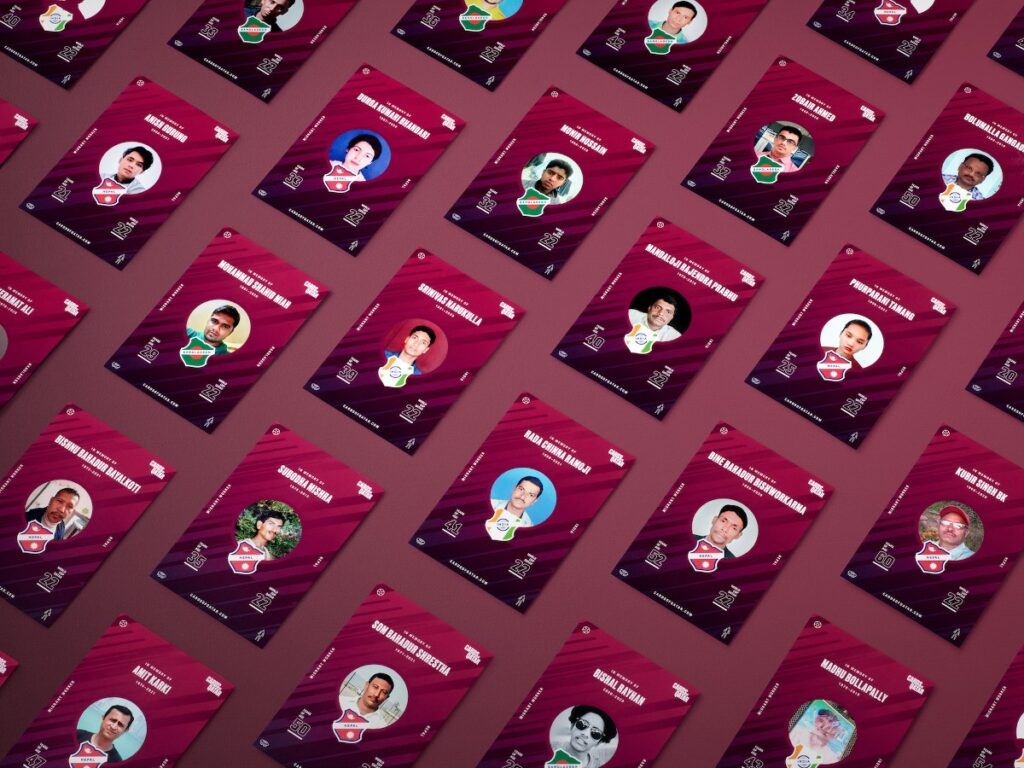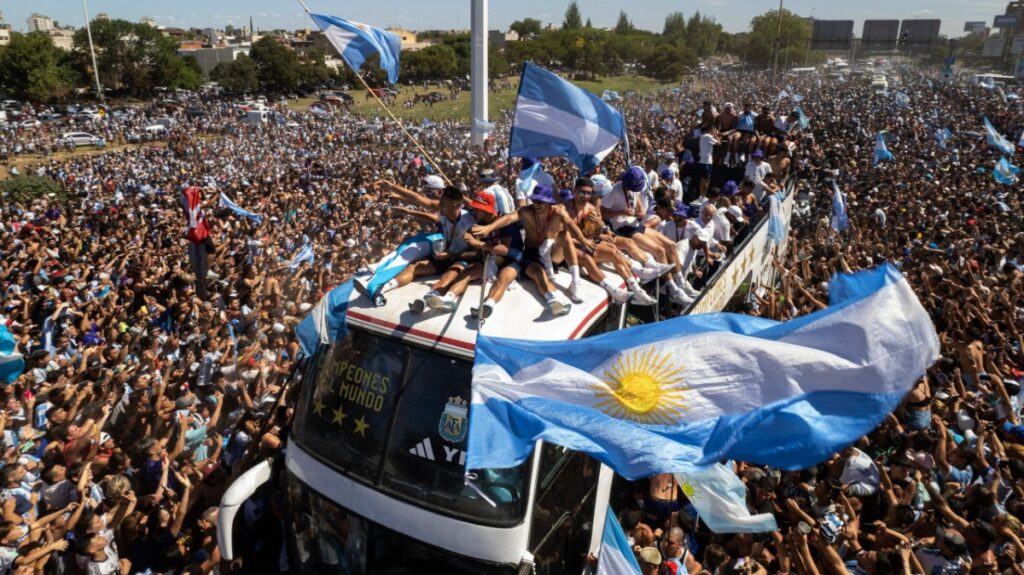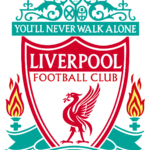The Qatar World Cup 2022 is over. Another milestone in my life has passed. Argentina, as I and many others predicted, are again World Champions. When the tournament began, I was torn between my love of football and my unease that football’s biggest event was in a country with a poor human rights’record and a callous disregard for the lives of the migrant workers who had made the ‘Qatar’ World Cup possible. At the competition’s end I still love football but worry about where those in control are taking the beautiful game.
The football was really good, played in a true sporting spirit with skill, power and grace. The final between France and Argentina was a wonderfully tense and exciting climax of a footballing soap opera that was full of joy and heartbreak (mine when England lost to France), of nail-biting tension and occasional boredom, of the totally predictable and the wholly unexpected. There were heroes -Argentina’s selfless Lionel Messi- and villains – Portugal’s selfish Ronaldo. Three continents were represented in the semi-finals – Europe, South America and, for the first time, Africa. Even the referees were good. And playing a World Cup just before Christmas does not seem to have been a big problem after all.
The Qatari hosts did what authoritarian regimes do. Qatar masked its hostility towards difference by giving a warm welcome to the ‘acceptable’ majority. Itinsisted on respect for its customs rather than accepting the world as the big diverse place it is. Qatar alsoclaimed to be victims of unfair and hypocritical criticism from the ‘West’, asking why similar complaints were not made of the three countries who will host the World Cup 2026. What about the restriction of women’s reproductive rights in the United States? What of Canada’s history of discrimination against its indigenous peoples? And what about the many people in Mexico who are uncomfortable with LGBTQ+ rights?

There are two replies to these points. First, Western governments, who want cheap oil and gas following Russia’s invasion of Ukraine, have not criticised Qatar. Criticism of Qatar has come from human rights and other activists based in the US and Europe, where they can protest their causes in relative freedom. There are reasons why Amnesty International is based in London and not in Beijing, that the LGBT foundation is in Manchester not Moscow, and Human Rights Watch is in New York, not Tehran. It is not the powerful criticising Qatar, but the powerless.
Second, yes. Many criticisms of Western countries are justified,butmany of those criticisms are made by those who live there. Across the West, there will continue to be resistance to restrictions on women’s reproductive rights. Pressure will go on to improve the treatment of indigenous peoples and immigrants and for equality for LGBTQ+ people.The belief that things will changewill keep those protests alive.
The Qatar World Cup was a timely reminder that football is big business. Argentina’s Lionel Messi was presented with the World Cup by his employer, the Emir of Qatar Tamim bin Hamad Al Thani. The Emir owns Paris St. Germain, the club Messi plays for.This shows that football’s future lies not with its fans but with European and American corporations, oil-rich Gulf states and oligarchs, all supported by Fifa – world football’s venal governing body.Fifa took in $7.5bn from the 2022 World Cup, $1bn more than expected, not bad for a non-profit organisation. Fifa should use some of that moneyto compensate families of immigrant workers injured or killed during preparations for the Qatar World Cup, but so far has said nothing.
What Fifa has announcedis a new 32-team men’s Club World Cup, starting in 2025, to take place every four years. Currently, seven clubs play in an annual competition. But more football means more money. Although fans, players and some clubs may have reservations about more and bigger competitions, big clubs, whose owners’ priorities lie in profit or publicity, will follow the money in search of the global fanbase that watches football not in stadiums, but on TV. The same incentives are offered by a European Super League (ESL). Despite fans rejecting the ESL in 2021,the real question is not about a European league, but who would control it. In 2024/25, UEFA,which governs European football, will change the format of its European Champions League and expand it from 32 to 36 teams. More European football means more money for big clubs.
Money talks, but it cannot score the winning goal with a diving header with two minutes left. Football is many things to many people. There is not as much money when Stoke City play Port Vale, or when Luton Town play Manchester City, but there is a magic in local rivalry, and in the slim chance that a small club can beat a giant in a knock-out cup game. There is a part of football that money cannot buy.

Was the 2022 Qatar World Cup an ‘incredible’success? In footballing terms yes. It was a great tournament, with a fairy tale ending as Lionel Messi fulfilled his destiny of emulating Diego Maradona by winning the World Cup with Argentina. It was also a success on human terms, with tens of thousands in Qatar and hundreds of millions of people across the world sharing and enjoying football either live or on TV. But, overall, the Qatar World Cup was a victory of finance over football, of profit and power over people.Football is not as important as human rights, but the struggle to find a better balance in who controls football is one that also must continue.


